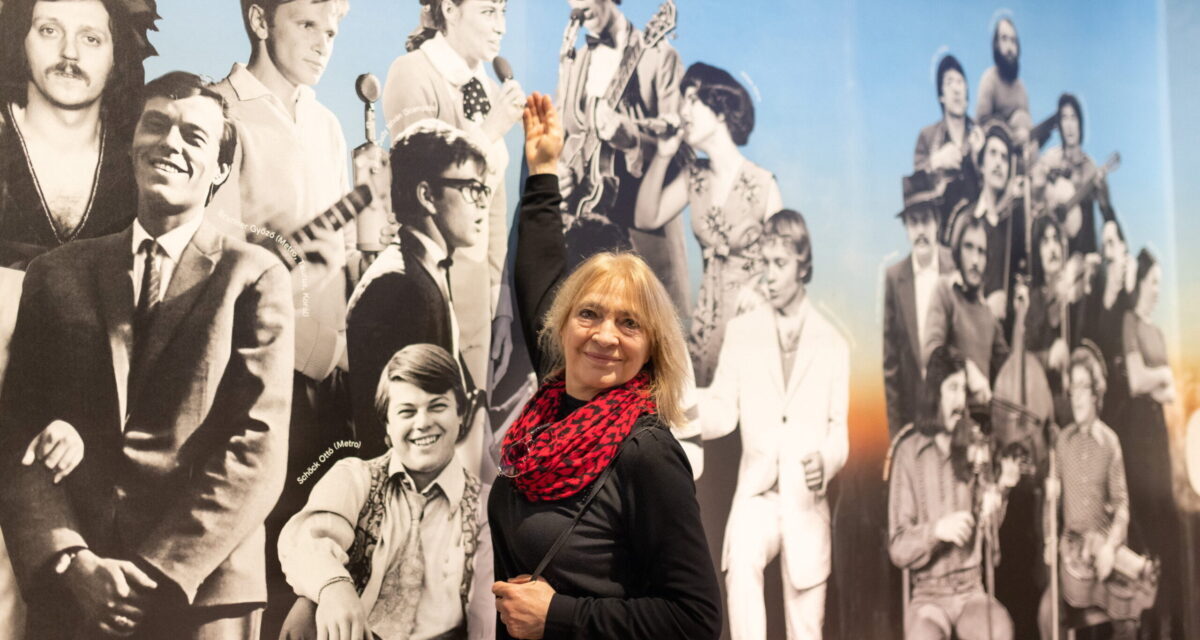Kati Kovács, a Hungarian entertainer, singer, lyricist, and actress who won the Kossuth and Ferenc Liszt Prizes, celebrates her birthday today. He is an outstanding individual of the Hungarian popular music scene, who in the 20-21. belongs to one of the most prolific and versatile artists of the 20th century.
He was born in Verpelét on October 25, 1944, but spent the first twenty years of his life in Eger with his mother and two brothers. He started singing in high school, playing Little Richard songs with the high school band, and since jazz was very close to him, he practiced Ella Fitzgerald's style at home.
In 1962, he applied for the first time to Ki mit tude?, but he did not make it to the national final, because of his presentation style, which the jury recommended was called "screaming".
The real success in 1965 was the second Who knows? brought it for him, for which his mother submitted the application. He finally won the competition after long rounds and many, many songs, and became the "Voice of the Year". In one fell swoop, he became a nationally famous star.
In 1966, the series of successes continued, he became the first winner in the history of Hungarian Dance Song Festivals, and won four prizes from the festival with his song " I will not be your toy"
He continued his studies at the jazz department of the Béla Bartók School of Music, among others as a student of György Vukán.
By the 1970s, he was already a recognized performer, and his LPs were released one after another. In 1972, he won the dance song festival again, with Add már, uram, az esőt! with the song entitled, with which he also became successful in Dresden.
He created in different styles, but he also returned to traditional dance music, the songs " If I See You Next", "Indian Summer", "Meeting an Old Love" and other songs recorded during these years became evergreen hits.
He worked with and produced albums with the best-known bands of Hungarian light music, such as Illés, Metro, Omega, LGT, V'Moto-Rock, Fonógráf. His songs are completed by the work of leading lyricists and musicians such as Gábor Presser, Levente Szörényi, Ferenc Demjén, Tibor Koncz, István Lerch, Anna Adamis and Iván Szenes.
She toured the world as a singer, and was popular not only among Hungarians abroad, but in Bulgaria and Poland they did a special TV show with her, and in the GDR she was chosen as the most popular foreign artist in 1974.
Kati Kovács has many records:
42 big and 92 singles were released, 25 of them abroad. His recordings appeared on more than three hundred compilation albums, and he has at least 500 songs in his repertoire. His records have sold more than ten million copies worldwide, and he has released the most solo records in the history of Hungarian record production.
Back home, his songs have been covered most of the time, and they have been performed in English, German, French, Finnish, Spanish, Italian, Czech and Russian.
During his career, his artistic activity was recognized with almost every prestigious award. In 1986, he received the highest musical award, the Liszt Ferenc Award, and in 2014 (for his genre-creating role in Hungarian light music culture, for his highly popular and incomparably rich performance as an artist, and in recognition of his decades-long artistic career) he was awarded by his country the Culture and the highest state recognition in the field of art, the Kossuth Prize.
For his high-quality musical work, he received the State Youth Award from the Hungarian State in 1978, the SZOT award in 1980, the Knight's Cross of the Order of Merit of the Hungarian Republic in 1994, and in 2011 (in recognition of his performance art, which is very popular beyond our borders, and his versatile artistic work) the Hungarian He was awarded the Officer's Cross of the Republic Order of Merit. Among other things, the profession awarded him with the Artisjus Életmű award in 2006 (for his outstanding activities in order to introduce and promote Hungarian musical works). In 2011 (in recognition of his outstanding role in the creation and popularization of Hungarian light music culture, and in recognition of his life's work) he was elected an honorary citizen of the capital of Budapest. In recognition of his artistic activity, he was made an honorary citizen in 2013 in Eger and in 2015 in Budajenő.
Featured image: Kati Kovács wrote the song for the new program venue of the House of Hungarian Music, Nekünk! temporary exhibition at the opening of the Club Square on February 13, 2023. In the Club Space of the first temporary exhibition of the House of Music, the public is welcomed with small, intimate concerts, discussions, and musical performances. MTI/Balázs Mohai












